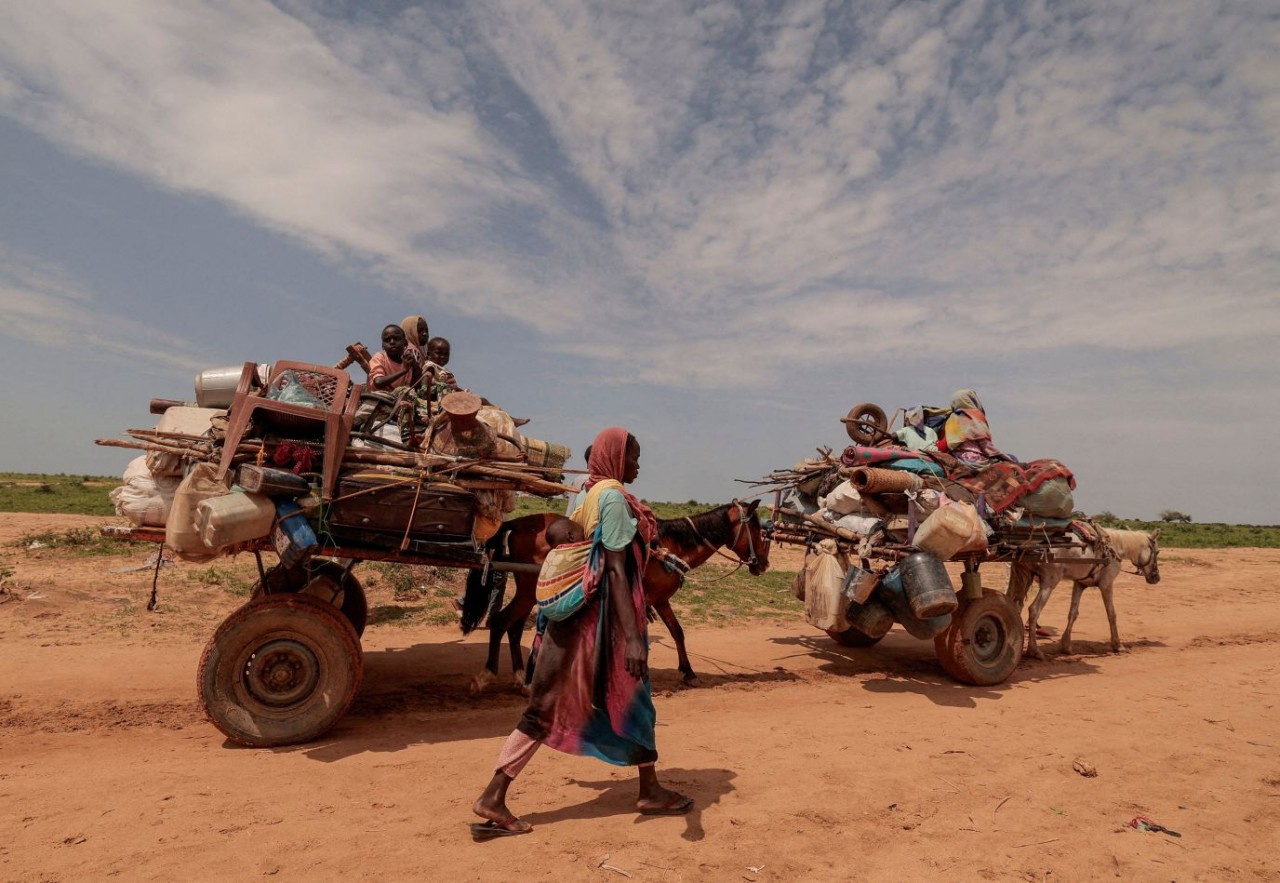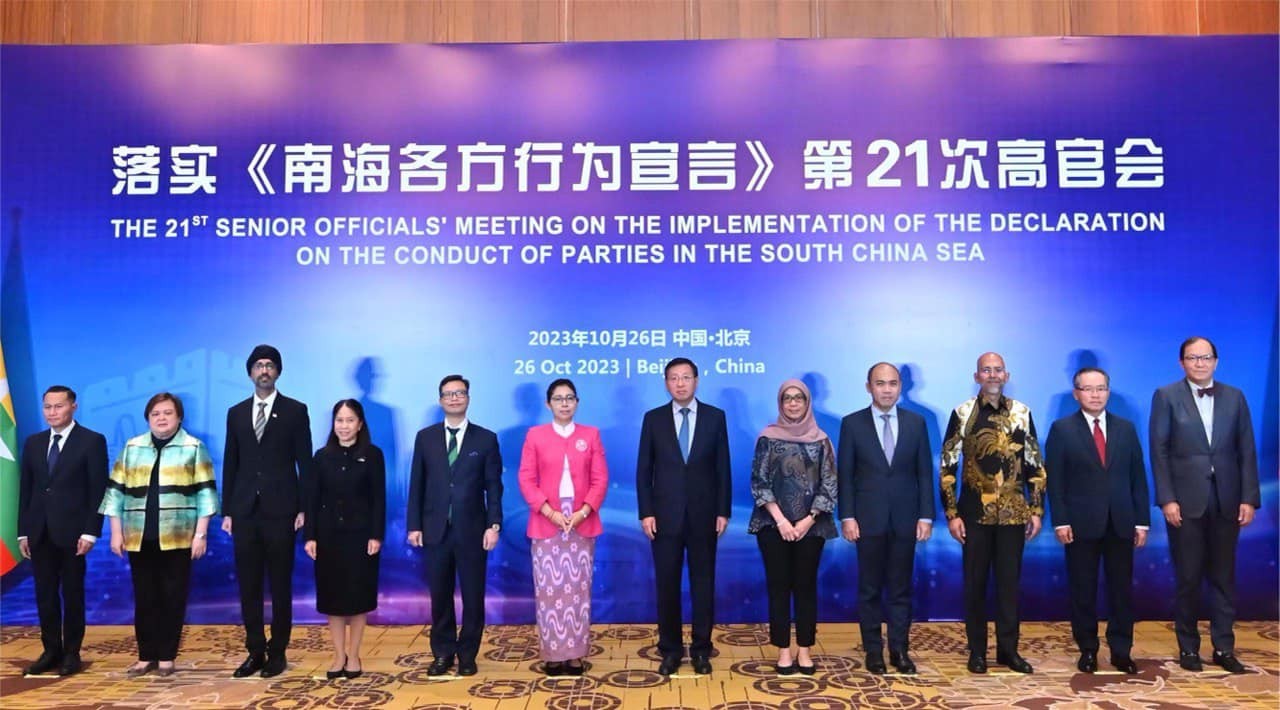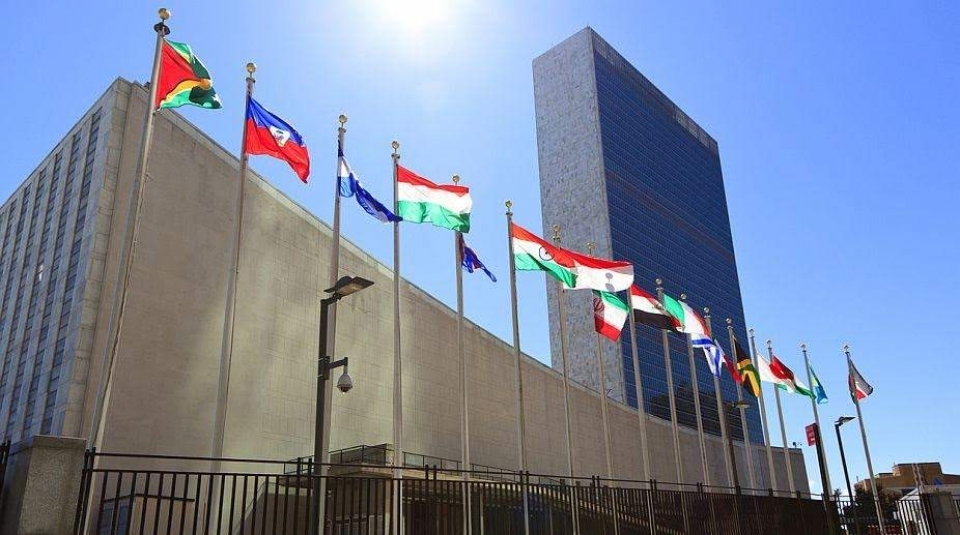
Building strategic trust on international laws and mechanisms
Latest
The absence of strategic trust
The prolonged civil war in Sudan and many other countries has left tens of thousands of people dead, millions of people homeless and displaced, pushing Africa into poverty and continuous coups. The conflict in Ukraine has caused casualties, destroyed infrastructure, and resulted to deep division between Europe and Russia and between the two countries that had been shared a "common house" for their long history.
 |
| A woman fled conflict in Murnei, in Sudan's Darfur region, heading straight for the border between her country and Chad. (Photo: Reuters) |
Hamas has attacked Israel after decades of smoldering conflict. Bombs, and tanks have caused devastation, and divisuib the Gaza Strip, widening the existing gap between the two peoples, the two states of Palestine and Israel; lowering the possibility of achieving reconciliation between the Arab nations and the Jewish state.
There are potential hotspots in the Korean Peninsula, Taiwan Strait, Eastern Sea and many other areas. Geostrategic competition and fierce conflicts among major countries, especially between the US - China and tje US - Russia, are at risk of developing into direct confrontation and conflict. There are too many catalysts putting tinderboxes at risk of exploding at any time.
Resolving conflicts and disputes by force has become a prominent trend across many continents. The sound of roaring planes and rockets; the smell of gunpowder smoke and images of innocent people, children, and women dying from conflict have become obsessions in parliaments, forums, in every house, for every person.
The voice of the international community has echoed to the United Nations General Assembly. However, the planet’s largest organization has not yet/cannot become a shield, a legal tool that can repel and prevent violence. Resolutions and initiatives in seeking solutions to end conflicts encounter many bottlenecks from opposing viewpoints, strategic calculations, and national and ethnic interests.
Geostrategic confrontation and competition among major powers are hidden behind the conflict. There are many existing reasons, causes, and perspectives. However, we must admit that strategic trust is absent in the world.
There is remaining trust
Luckily, the world is not unicolor, and unidimensional. In contrast to the gloomy trend of conflict, there are optimistic movements. Peace, cooperation and development remain as major trends. Agreements, treaties, mechanisms, agreements, and commitments are still being negotiated, signed, and announced. Faith in the dialogue and cooperation trend is continuously strong in many places around the world.
10 countries in the ASEAN Community have differences in political institutions, levels of development, culture, existing problems and problems arising internally as well as in relations with major partners. Nevertheless, ASEAN countries are remaining united, overcoming challenges together, building a comprehensive development community on all three pillars: Politics - security, Economy, and Culture – society. The Association is playing a central role in the regional structure, serving as a driving force of economic growth, gradually becoming a pole of a multi-polar, multi-centered world.
Militarization, declaration of sovereignty lines which is not in accordance to international law, gray zone tactics and acts of chasing away fishermen are threatening security, stability, cooperation and development of the East Sea region, obstructing legal economic and civil marine activities. However, countries still put aside disputes and persevere in negotiations to realize the aspiration of turning the disputed East Sea into a sea of peace and long-term cooperation. On October 26, China and ASEAN completed the third reading, in the process of consultation and negotiation to build an effective and substantive Code of Conduct in the East Sea (COC) in accordance with international law.
 |
| The 21st senior officials' meeting on implementation the Declaration on the Conduct of Parties in the Eastern Sea (DOC) was held in Beijing (China) on October 26, 2023. (Photo: Ministry of Foreign Affairs of China) |
Vietnam and the US have been opponents for more than 20 years of fierce wars, blockage and embargo. On September 10, the two countries officially elevated the relationship into Comprehensive Strategic Partnership.. Although there are still many challenges ahead, the transforming from enemies to comprehensive strategic partners is a magical journey of the motto of "putting aside the past, overcoming differences, promoting similarities, moving towards the future." , a model of the relationship in the world.
There are also different perspectives, strategic calculations, speculations according to "conspiracy theories"... However, the examples mentioned above all have something in common, which is the combination of strategic beliefs, political determination, and the idea of win-win thinking and sincere practical action. In this process, strategic trust is the premise for negotiation, resolving differences, conflicts, disputes and promoting cooperation and development.
Necessary but not enough
Trust is an indispensable factor in daily social relationships. The lesson "losing trust is losing everything" becomes the truth of the times. At the national and international dimentions, related to strategy, policy, national and ethnic interests, conflicts and wars, the issue of strategic trust is extremely important, but also very complicated. Building strategic trust is difficult, maintaining it long-term, verifying it and converting it into strength is even more difficult.
In 2013, at the 12th Shangri-La Dialogue in Singapore, the Prime Minister of Vietnam generalized and raised the issue of strategic trust to the international level, with the connotation of trust and rapprochement among nations; with the belief in international law, in the ability to negotiate and resolve conflicts and disputes by peaceful means.
Building strategic trust becomes a fulcrum and tool that contributes to solving complex problems in international relations. Beyond an international dialogue forum, the issue of strategic trust has overarching value, appearing with great frequency in multilateral and bilateral forums, conferences, political and diplomatic documents.
In today's world of fierce geostrategic competition, strategic trust has become an urgent and vital issue. However, for many reasons, building strategic trust, especially among major countries and promoting its role on a global scale, still faces many obstacles.
Strategic trust is sometimes considered far-fetched and difficult to verify in reality! Some countries believe in the mindset of using force to deter and subdue other countries and by this way, can win with negligible losses; or through proxy wars to achieve strategic goals at low cost.
Some countries promote their own national interests, regardless of the legitimate interests of other countries; implementing political intentions, goals, and strategic objectives, regardless of international law and the basic principles of the United Nations Charter. In those cases, strategic trust has no place or becomes a propaganda item or just a slogan.
 |
| Can the United Nations - the largest multilateral organization on the planet - become a shield and legal tool capable of repelling and preventing violence? (Photo: Getty Images) |
There is a bridging and dialectical relationship between strategic trust and international mechanisms, institutions, principles and laws. Strategic trust is the premise for negotiating and signing agreements, treaties, mechanisms and institutions. Legal documents create a framework for monitoring, realizing and promoting the role of strategic trust. Therefore, only having strategic trust is not enough. It is necessary to synchronize many activities, factors and solutions.
Firstly, synchronously build mechanisms and institutions to control, monitor, and restrain powerful political acts that reduce strategic trust. We now can have a number of mechanisms and institutions. It is necessary to continue to consolidate, supplement and improve them in accordance with the evolving of the situation.
Second, improve the capacity and enhance the responsibility, effectiveness and efficiency of central power agencies, to promote building strategic trust on a global scale, and prevent non-compliant behaviors and actions, in accorance with basic international principles and law. The work that needs to be done is to innovate and improve the organization and operating mechanism, and strongly promote the role of the United Nations in international relations.
Third, countries, especially big countries, need to make efforts to build stable, predictable relationships. Implement public and transparent policies; sincerity, substance, maintain the integrity between statement and action; build trust in relationship with other countries, minimize risks and miscalculations.
Fourth, promote the role of foreign affairs as an important and regular channel to exchange ideas on international issues of common interest and concerns, clarify guidelines, policies and differences, and practically build trust. strategy. At the same time, it is an important force and indispensable tool in negotiations, building mechanisms and institutions to monitor and control conflicts and disputes; remove bottlenecks, resolve arising problems, contribute to building and strengthening strategic trust.













